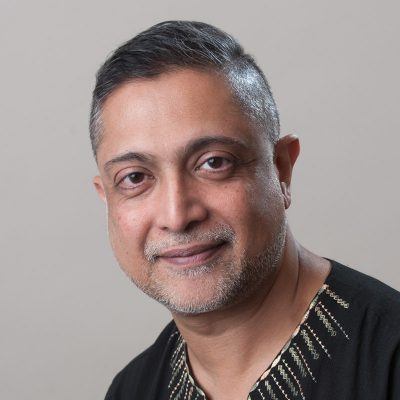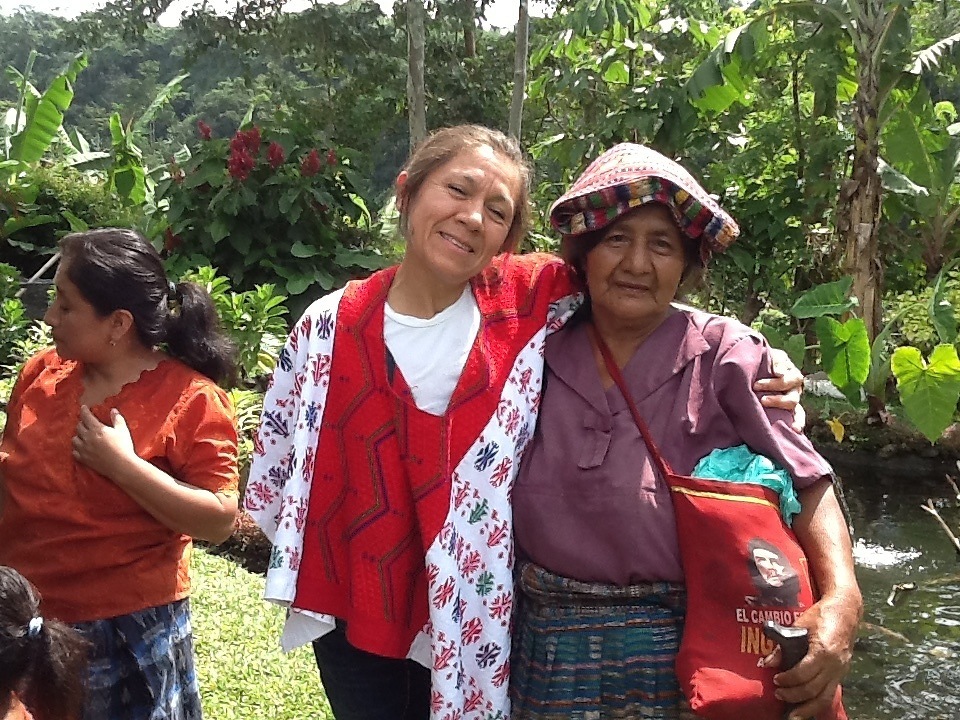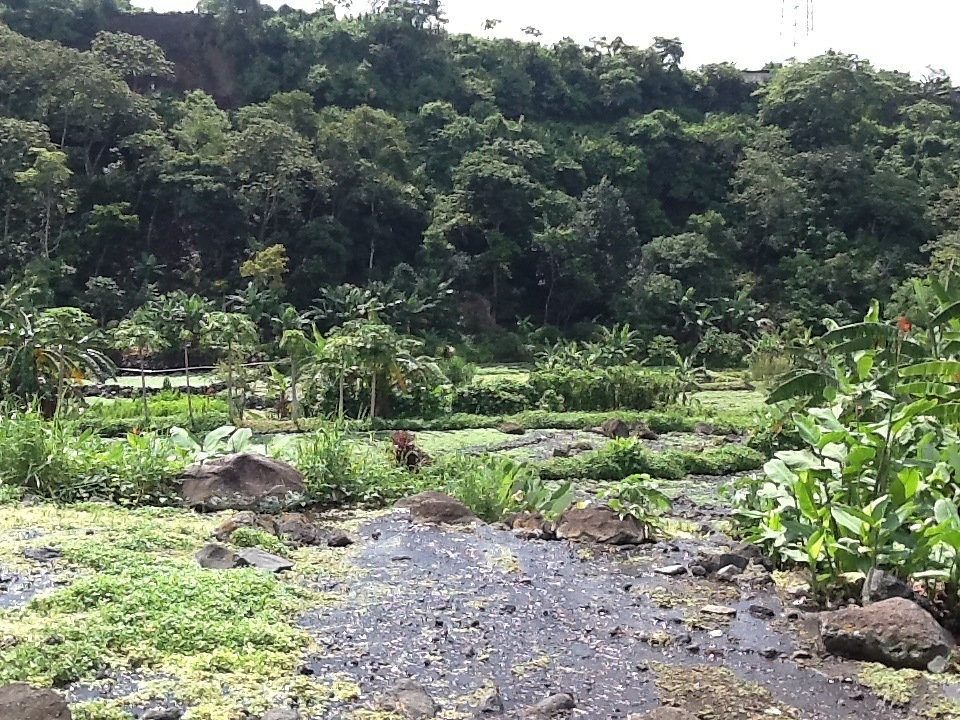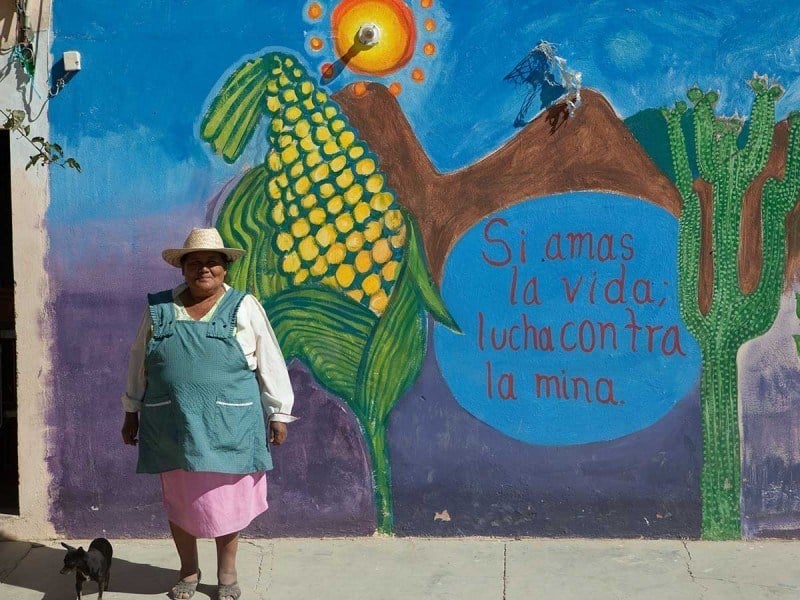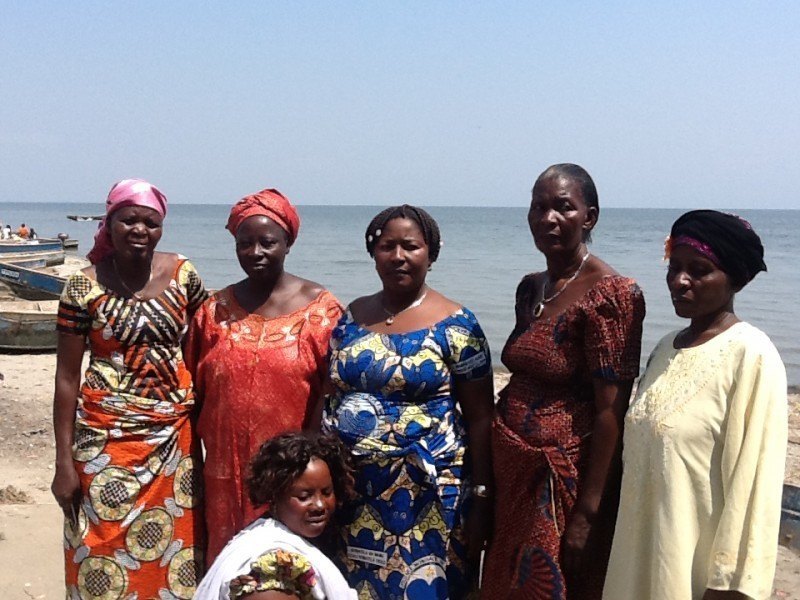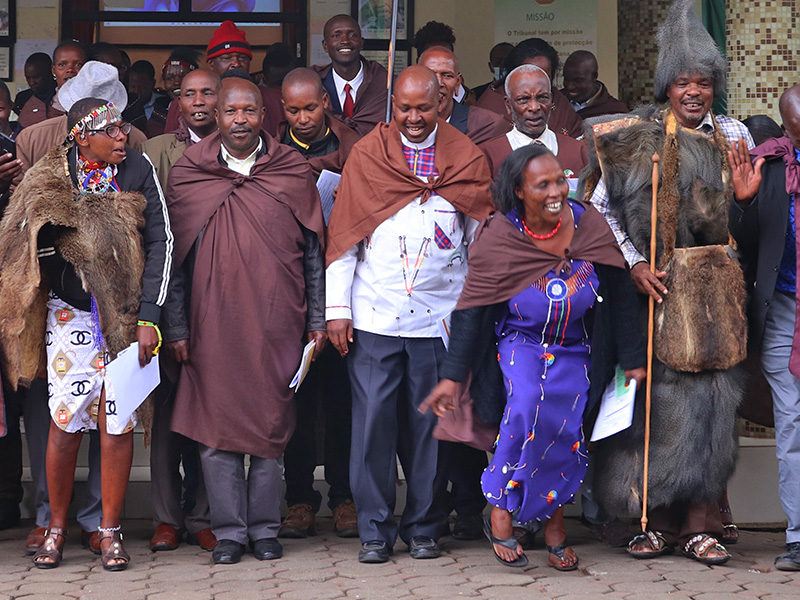Maria Magdalena Xalcut is in her 60s, but she has more energy than most women half her age. She is a member of Comité Campesino del Altiplano – Committee of Peasants of the Highlands (CCDA), a grassroots organization of small-scale farmers supported by AJWS. The group works in 11 regions throughout Guatemala to confront land rights challenges and meet the needs of rural, predominantly Mayan communities.
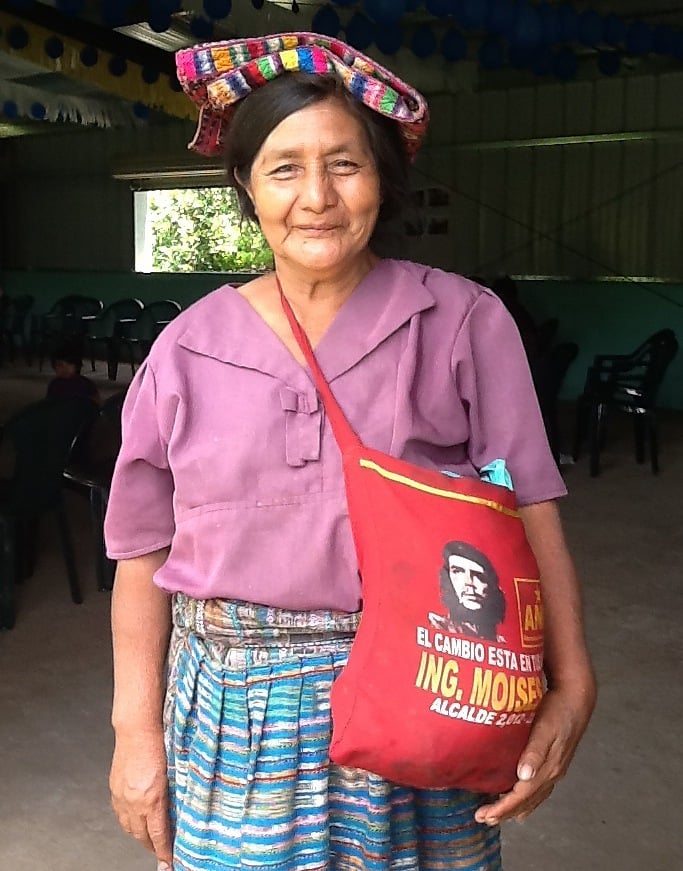
“I’ve been a member of CCDA for 17 years now,” she told my colleagues and me. We were on our way to see the milpa that she and other women in her community had created. A milpa is a field used to grow different crops and produce based on agroecology. As we reached the milpa, she told me her story.
The men in her community used to earn 25 quetzals (about $3) a day working on the local finca (plantation) as day laborers. That wasn’t enough to survive. So she went to a meeting organized by AJWS grantee CCDA, where she learned about their work advocating for land rights for indigenous people in Guatemala. Maria was hooked.
Their milpa is located on land that CCDA won through a land claim they brought to the government. “We began with beans, greens, corn, and yucca. And then we added fish cultivation. This has been life-changing for us. No government ever supported us, unless you were a party member; in which case you got handouts around election time. But CCDA has been a lifesaver,” added one of Maria’s colleagues.
I asked her how the larger community responded. “We started with 10 women, but now we’re 30 because more women are seeing the benefits,” Maria beamed. “At first, the men were not happy. They didn’t like us going to meetings. Now that they’re eating fish, they’re very happy!”
According to Maria, traditional gender-defined customs are breaking down as well. Previously, women never had access to land. Now, with CCDA’s help, that’s changing. Not only do women now have access to land, women are now advocating for their communities’ rights. Maria, for example, joined CCDA’s campaign against the Central American Free Trade Agreement (CAFTA). “I was worried about the import of genetically modified seeds that would impact our native corn varieties. Alfonso Portillo [Guatemala’s President from 2000 through 2004] was lying about all this. He said CAFTA would bring jobs and housing. None of that happened.”
Nadie Juracán, a youth leader of CCDA, told me that this group of 30 women has been an inspiration to many others. “The men are actually encouraging women to participate now. They tell their wives they should be like these women.”
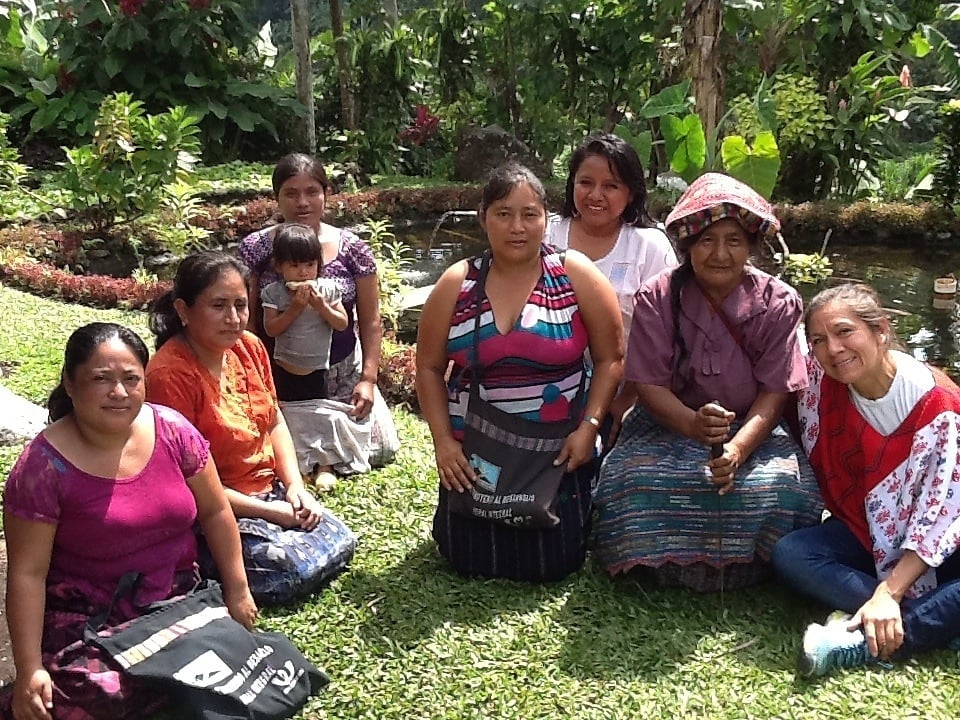
Nadie, who came to New York for a conference that my colleague Angela Martinez had organized, is the daughter of Leocadio Juracán, one of CCDA’s founders. I asked her how she got involved. “I was born with struggle in my blood,” she said. “My father was part of the indigenous and campesino (peasant) struggle for justice. My parents took me to political rallies starting at the age of five.”
She remembers when her father was shot. Her family has faced many death threats. She has too.
“At first I wanted to study medicine. And I did, because there is such a need in rural communities for medical services. However, I found that even if I was to be a doctor, there are no clinics or medicines available in many areas. And most of the people studying to be doctors come from the elite or want to be part of it. So I switched to agronomy [the study of soil management and crop production] and political science.”
I asked her if she was happy with her decision. She nodded, “My mother worries about me, but I wouldn’t want to do anything else. This is who I am.”
AJWS’s work in countries and communities changes over time, responding to the evolving needs of partner organizations and the people they serve. To learn where AJWS is supporting activists and social justice movements today, please see Where We Work.

